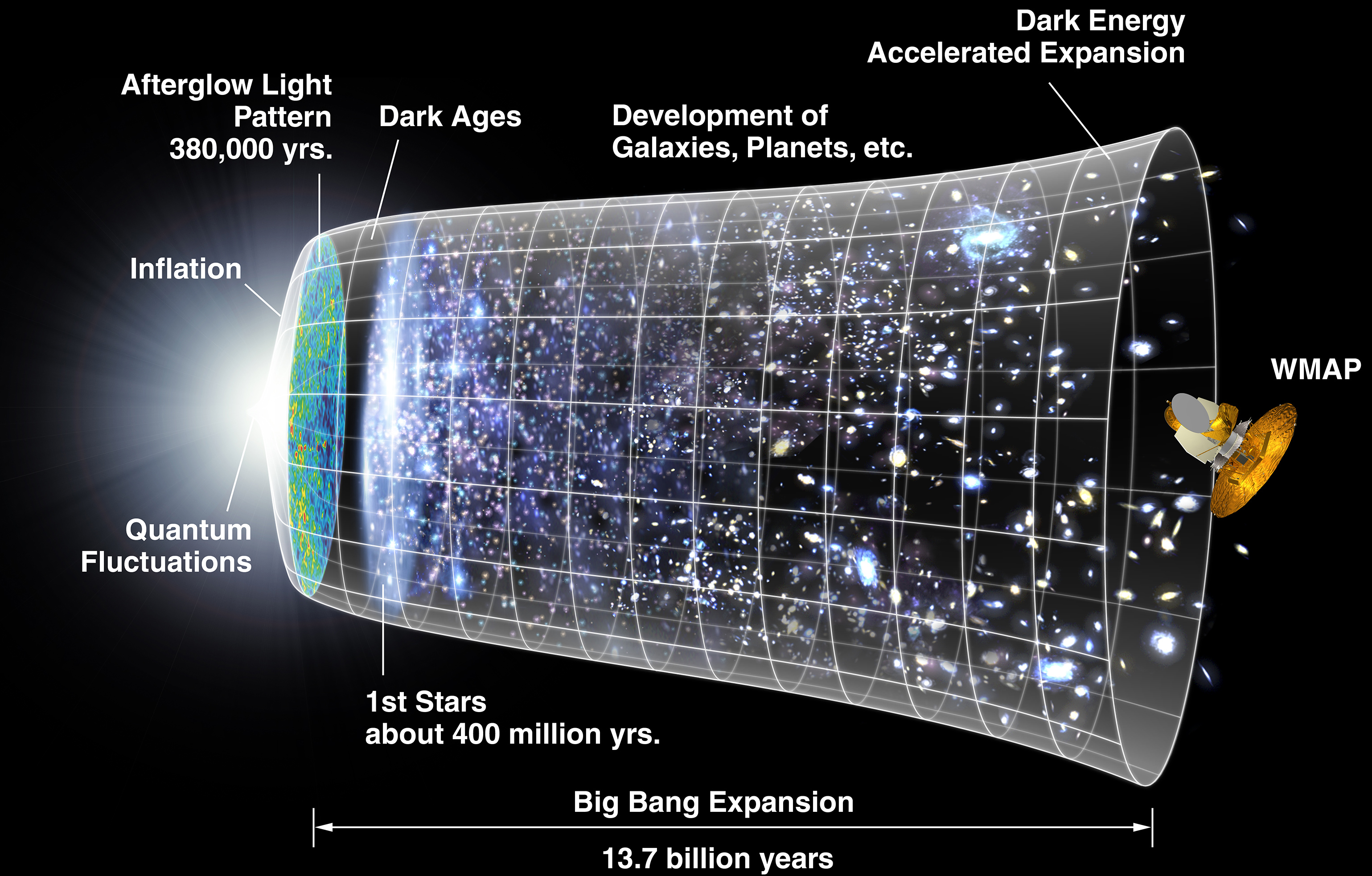By Mike Sares
Nothing comes out of nothing; something comes out of something. The energy and matter which sent the galaxies spinning with stars came from something. Any attempt to retreat into the brute fact that the universe is “just there” is a cop-out. The universe does not appear to be infinite in the face the Big Bang Theory and of entropy. Entropy is the second law of thermodynamics and tells us that the universe is winding down without hope of ever winding back up. It is heading toward a state of maximum disorder and uniform energy distribution. The sun will burn up and all fuels will eventually burn up as well. But since a state of maximum entropy has not yet been reached, the universe has not been here forever. (1)
The universe is amazingly complex. Time magazine devoted a cover story to the subject, “What Does Science Tell Us About God?” The lead article was written by an unbeliever, Dr. Robert Wright, who called himself a fairly hard-core scientific materialist. But in the course of the article, Dr. Wright admitted:
“One intriguing observation that it has bubbled up from physics is that the universe seems calibrated for life’s existence. If the force of gravity were pushed upward a bit, stars would burn out faster, leaving little time for life to evolve on the planets circling them. If the relative masses of protons and neutrons were changed by a hair, stars might never be born, since the hydrogen and they eat wouldn’t exist. If, at the Big Bang some basic numbers — the initial conditions — had been jiggled, matter and energy would never have coagulated into galaxies, stars, planets or any other platform stable enough for life as we know it. And so on.” (2)
 Beings as complex as humans don’t just happen by accident. If you were walking along a mountain trail and saw a watch in the middle of the path, you wouldn’t think to yourself, “My, what amazing accident of atoms and energy occurred which formed this chronographic mechanism?” You’d figure somebody designed and made it. A human being is much more complex than a watch. What are the chances that we are an accident of atoms and energy?
Beings as complex as humans don’t just happen by accident. If you were walking along a mountain trail and saw a watch in the middle of the path, you wouldn’t think to yourself, “My, what amazing accident of atoms and energy occurred which formed this chronographic mechanism?” You’d figure somebody designed and made it. A human being is much more complex than a watch. What are the chances that we are an accident of atoms and energy? Darwin himself stated that discovery of a “complex organ which could not possibly have been formed by numerous, successive, slight modifications would absolutely break down” (3) his theory of evolution. A good example of this complex organ is the cilium. Cilia are hair-like structures on the surfaces of many animal and lower plant cells that can move fluid over the cell’s surface or row single cells through a fluid. … Just as a mousetrap does not work unless all of its constituent parts are present, ciliary motion simply does not exist in the absence of micro-tubules, connectors, and motors. Therefore, we can conclude that the cilium is irreducibly complex — an enormous monkey wrench thrown into its presumed, Darwinian evolution. (4)
Darwin himself stated that discovery of a “complex organ which could not possibly have been formed by numerous, successive, slight modifications would absolutely break down” (3) his theory of evolution. A good example of this complex organ is the cilium. Cilia are hair-like structures on the surfaces of many animal and lower plant cells that can move fluid over the cell’s surface or row single cells through a fluid. … Just as a mousetrap does not work unless all of its constituent parts are present, ciliary motion simply does not exist in the absence of micro-tubules, connectors, and motors. Therefore, we can conclude that the cilium is irreducibly complex — an enormous monkey wrench thrown into its presumed, Darwinian evolution. (4)
Even invisible concepts such as beauty are difficult to explain from a naturalistic worldview. Is there any reason in natural selection why humans should view the Rocky Mountains, a midnight meteor shower, or waves crashing onto the shore as anything beautiful? On the contrary, preoccupation with such things as these might actually decrease the rate of survival—especially if an enemy or predator were nearby! Certain concepts of beauty (women and men’s fashions, for example) seem to change with each passing decade; but some things in creation have always been “inexplicably” beautiful. Other invisible concepts such as honor, courage, sacrifice, fairness, forgiveness, and the like are also difficult to explain without appealing to an objective standard of thinking and behavior outside a strictly material universe. There is no reason to believe that a merely physical universe would explain these pervasive human notions. The existence of God certainly does.
To sum up: the reality of the universe, the complexity of living organisms, and humanity’s awareness of any kind of virtue all point to to the existence of God.
_________________________________________________
(1) J.P. Morgan, Scaling the Secular City (Grand Rapids, Michigan:Baker, 1987), p. 35
(2) Robert Wright, “Science, God and Man,” Time Magazine December 28th, 1992, p. 40
(3) Charles Darwin, Origin of the Species, 6th ed. (New York: New York University Press, 1988), p. 154
(4) Michael Behe, in Dembski and Kushiner, Signs of Intelligence (Grand Rapids, Michigan: Brazos Press, 2001), p. 96



